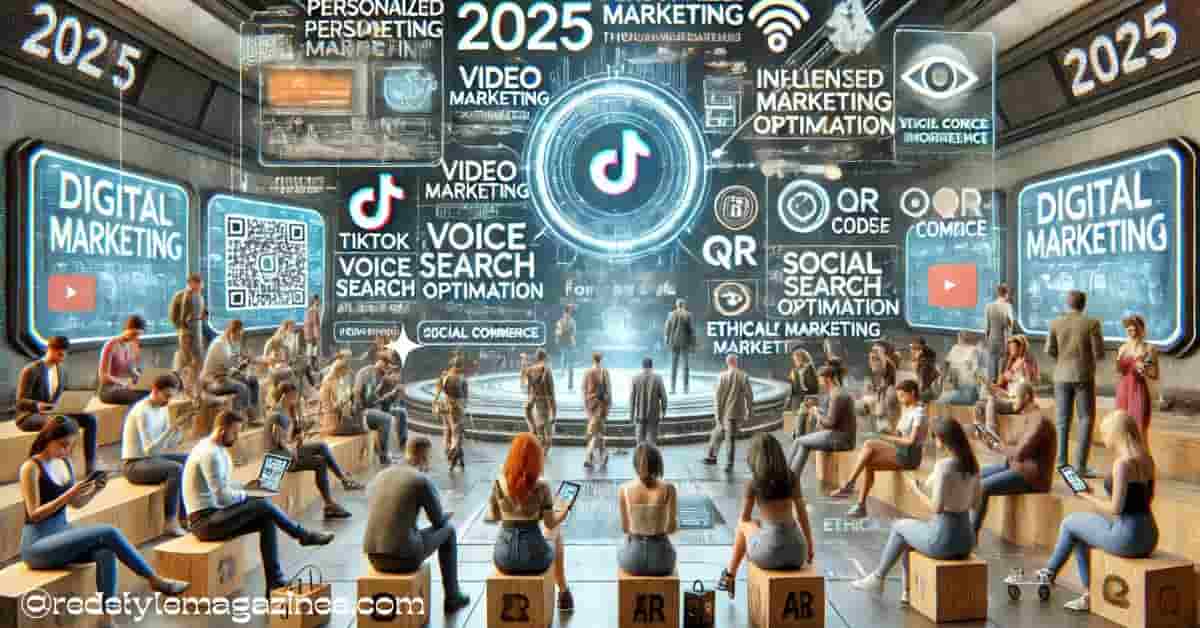In the ever-evolving landscape of digital marketing, staying ahead of the curve is crucial for businesses to thrive. As we approach the mid-2020s, several key trends and strategies are emerging that are reshaping how brands connect with their audiences. This article explores some of the most significant developments in digital marketing, offering insights into what the future holds.
Personalization and Customer Experience
One of the most prominent trends in digital marketing is the emphasis on personalization. Consumers today expect tailored experiences that cater to their individual needs and preferences. Brands are leveraging data analytics and artificial intelligence to create highly personalized marketing campaigns. From personalized emails to customized product recommendations, the focus is on making each customer feel valued and understood.
The Rise of Video Marketing
Video content continues to dominate the digital marketing sphere. Platforms like YouTube, TikTok, and Instagram Reels have become essential tools for marketers to engage with their audiences. Short-form videos, in particular, have gained immense popularity, offering a quick and engaging way to convey brand messages. Live streaming and webinars are also on the rise, providing opportunities for real-time interaction and engagement.
Influencer Marketing
Influencer marketing has evolved significantly over the past few years. Brands are now collaborating with micro-influencers who have smaller but highly engaged followings. These influencers often have a more authentic connection with their audience, making their endorsements more credible. Additionally, the use of influencer marketing is expanding beyond social media to include podcasts, blogs, and other digital platforms.
Voice Search Optimization
With the increasing use of voice assistants like Amazon Alexa and Google Assistant, voice search optimization has become a critical aspect of digital marketing. Brands are optimizing their content to be more conversational and natural, ensuring that it aligns with how users speak rather than type. This shift requires a deeper understanding of user intent and the nuances of spoken language .
Augmented Reality (AR) and Virtual Reality (VR)
AR and VR technologies are transforming the way brands interact with consumers. AR, in particular, is being used to create immersive shopping experiences, allowing customers to virtually try on products or visualize them in their own environment. VR, on the other hand, is being utilized for virtual events, tours, and training sessions, offering a more engaging and interactive experience.
QR Code Generator
The use of QR codes has seen a resurgence, especially in the wake of the COVID-19 pandemic. QR codes provide a quick and contactless way for consumers to access information, make payments, and engage with brands. A QR code generator has become an essential tool for marketers, enabling them to create custom QR codes that can be used for various marketing campaigns, from promotional materials to in-store displays.
Data Privacy and Security
As digital marketing becomes more data-driven, concerns about data privacy and security are growing. Consumers are increasingly aware of how their data is being used, and brands must prioritize transparency and ethical data practices. Compliance with regulations like GDPR and CCPA is crucial, and brands are investing in robust data protection measures to build trust with their customers.
Social Commerce
Social commerce, the integration of social media and e-commerce, is gaining traction. Platforms like Instagram and Facebook are introducing shopping features that allow users to purchase products directly from social media posts. This trend is making the shopping experience more seamless and convenient, reducing the friction between discovery and purchase.
Sustainability and Ethical Marketing
Consumers are becoming more conscious of environmental and social issues, and they expect brands to align with these values. Sustainable and ethical marketing practices are no longer optional; they are essential for building a positive brand image. Brands are focusing on transparency, sustainability, and social responsibility in their marketing strategies, appealing to the growing number of eco-conscious consumers.
In conclusion, the digital marketing landscape in 2025 is characterized by a blend of technological advancements, personalized experiences, and ethical considerations. Brands that stay ahead of these trends and adapt their strategies accordingly will be well-positioned to succeed in the competitive digital marketplace.




